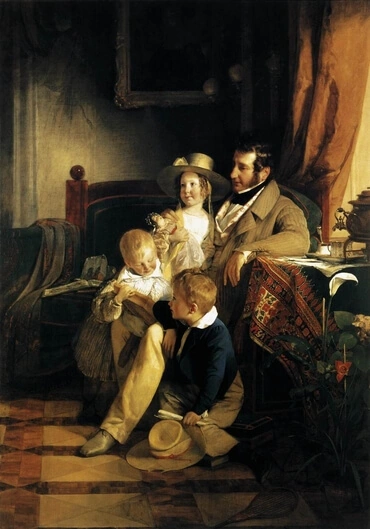1
Ja Issand ütles Moosesele: 'Räägi preestritega, Aaroni poegadega, ja ütle neile, et ükski neist ei tohi ennast roojastada surnu pärast oma rahva seas;
2
üksnes sugulase pärast, kes temale on kõige lähem: oma ema ja isa, oma poja ja tütre, oma venna
3
või oma neitsiliku õe pärast, kes on temaga suguluses ega ole saanud mehele, võib ta ennast roojastada;
4
ta ei tohi ennast roojastada ega teotada isandana oma rahva seas!
5
Nad ei tohi endil pealage paljaks ajada ega habeme äärt ära lõigata ja nad ei tohi oma ihusse lõigata mitte mingisugust märki!
6
Nad peavad olema pühad oma Jumalale ja nad ei tohi teotada oma Jumala nime, sest nad ohverdavad Issanda tuleohvreid, oma Jumala leiba, ja seepärast olgu nad pühad!
7
Nad ei tohi võtta hoora ega teotatud naist; nad ei tohi võtta ka mehe poolt äraaetud naist, sest preester on pühitsetud oma Jumalale!
8
Sa pead teda pidama pühaks, sest ta ohverdab sinu Jumala leiba; ta olgu sulle püha, sest mina, Issand, kes teid pühitseb, olen püha!
9
Kui preestri tütar ennast teotab hoorusega, siis ta teotab oma isa; ta põletatagu ära tulega!
10
Ülempreester oma vendade hulgas, kellele on valatud pähe võideõli ja kelle kätt on täidetud, et ta võib kanda ametiriideid, ei tohi oma juukseid lahtiseks jätta ega oma riideid lõhki käristada,
11
ja ta ei tohi minna mitte ühegi surnu juurde; ka oma isa ja ema pärast ei tohi ta ennast roojastada!
12
Ta ei tohi väljuda pühamust, et ta ei teotaks oma Jumala pühamut, sest tema peal on ta Jumala pühitsuse võideõli! Mina olen Issand!
13
Ta võtku naine selle neitsipõlves:
14
ta ei tohi võtta leske ega hüljatut ega teotatut ega hoora, vaid ta võtku naiseks üks neitsi oma rahva seast,
15
et ta ei teotaks oma seemet oma rahva seas, sest mina olen Issand, kes teda on pühitsenud!'
16
Ja Issand rääkis Moosesega, öeldes:
17
'Räägi Aaroniga ja ütle: Ükski su järglasist nende tulevastes põlvedes, kellel on mingi viga, ei tohi tulla ohverdama oma Jumala leiba,
18
sest ükski, kellel on mingi viga, ärgu astugu esile, olgu mees pime või lombak või lõhkise ninaga või mõne moonutatud liikmega,
19
või keegi, kellel on murtud jalg või murtud käsi,
20
või on küürakas, kuivetanud, kaega silmal, sügeliste või sammaspoolega, või on kohitsetu!
21
Ükski preester Aaroni järglasist, kellel on mingi viga, ärgu tulgu ohverdama Issanda tuleohvreid: tal on viga küljes, ta ei tohi tulla ohverdama oma Jumala leiba!
22
Oma Jumala leiba, kõige pühamat ja püha, ta võib küll süüa,
23
ometi ta ei tohi tulla eesriide juurde ega ligineda altarile, sest ta on vigane; ta ei tohi teotada minu pühi paiku, sest mina olen Issand, kes need on pühitsenud!'
24
Ja Mooses rääkis seda Aaronile ja ta poegadele ja kõigile Iisraeli lastele.







